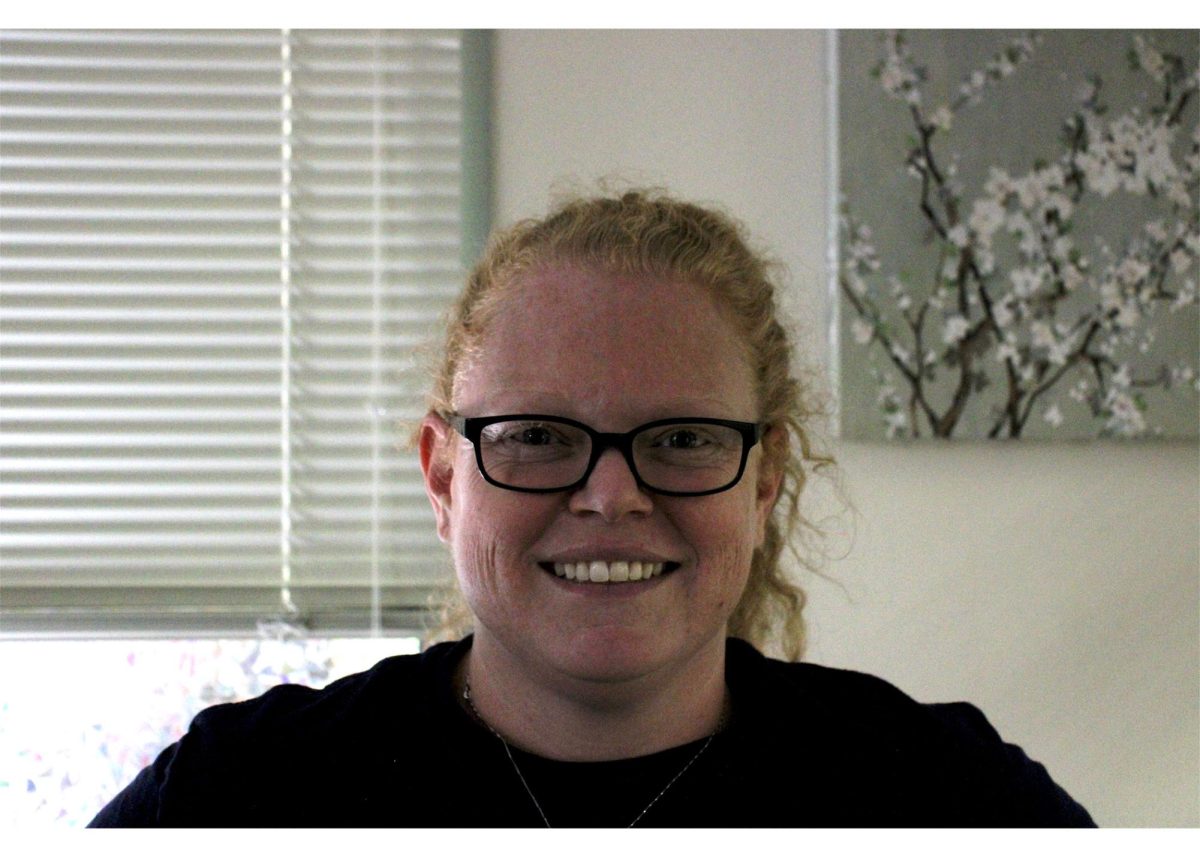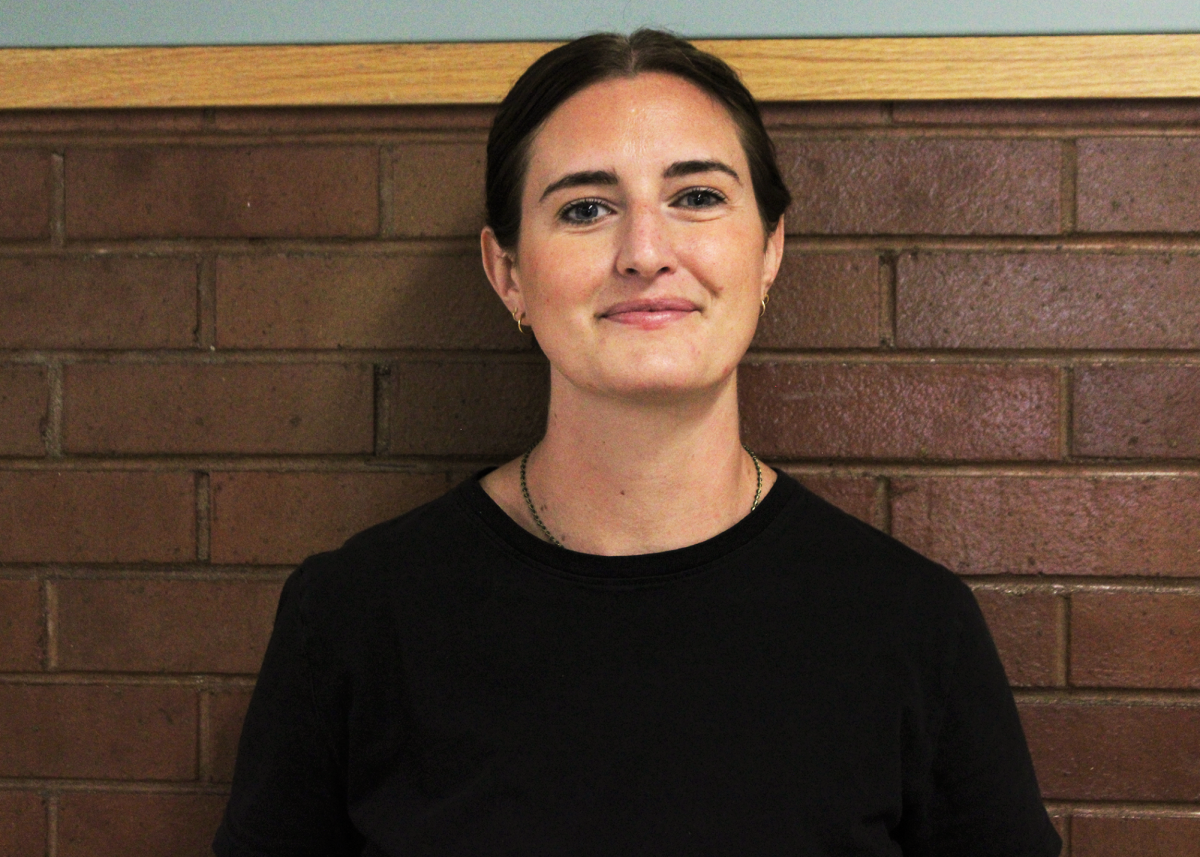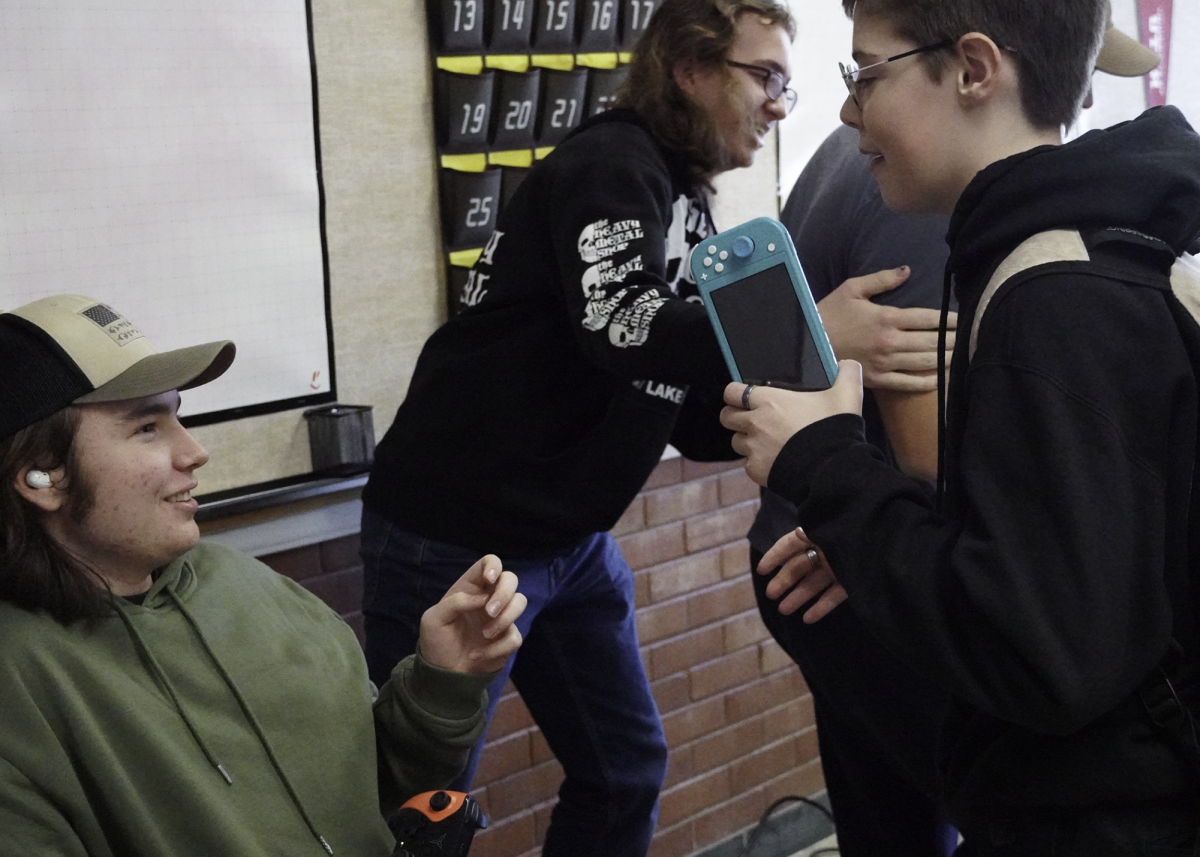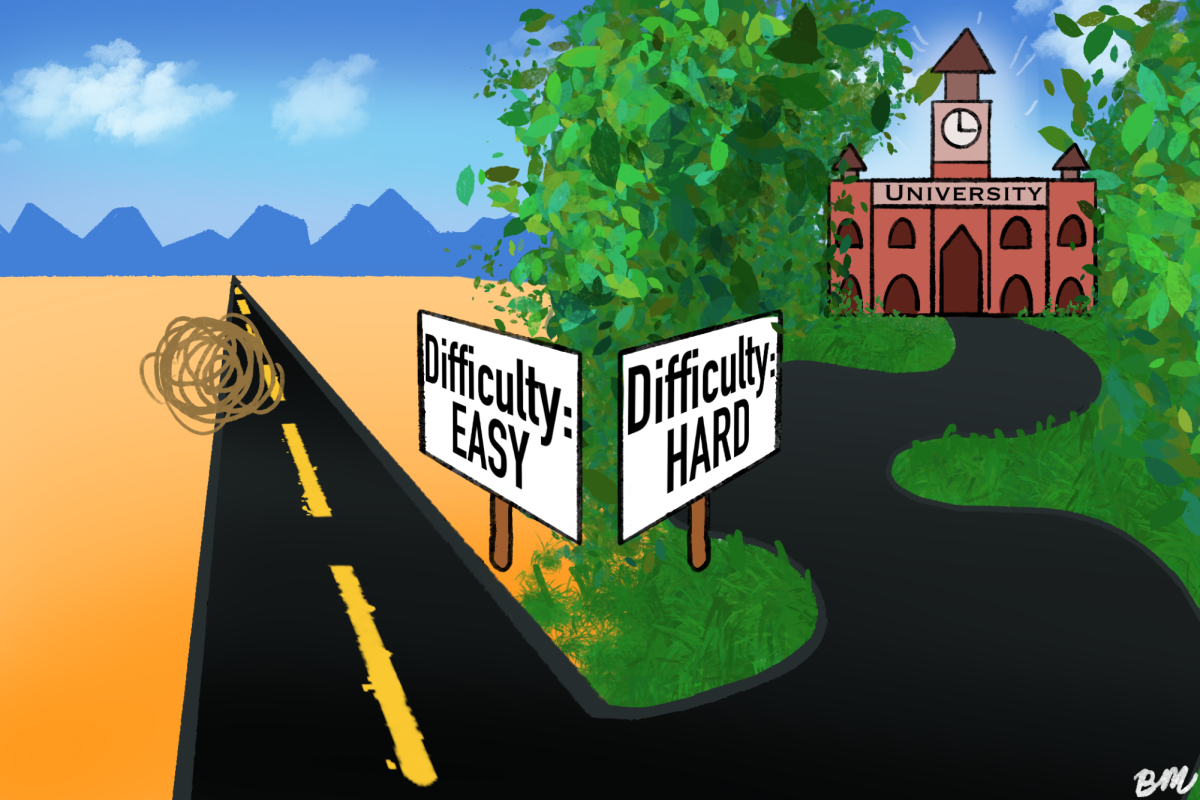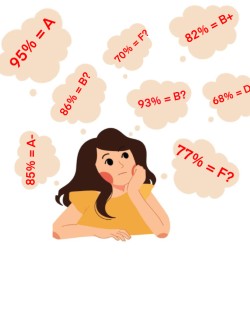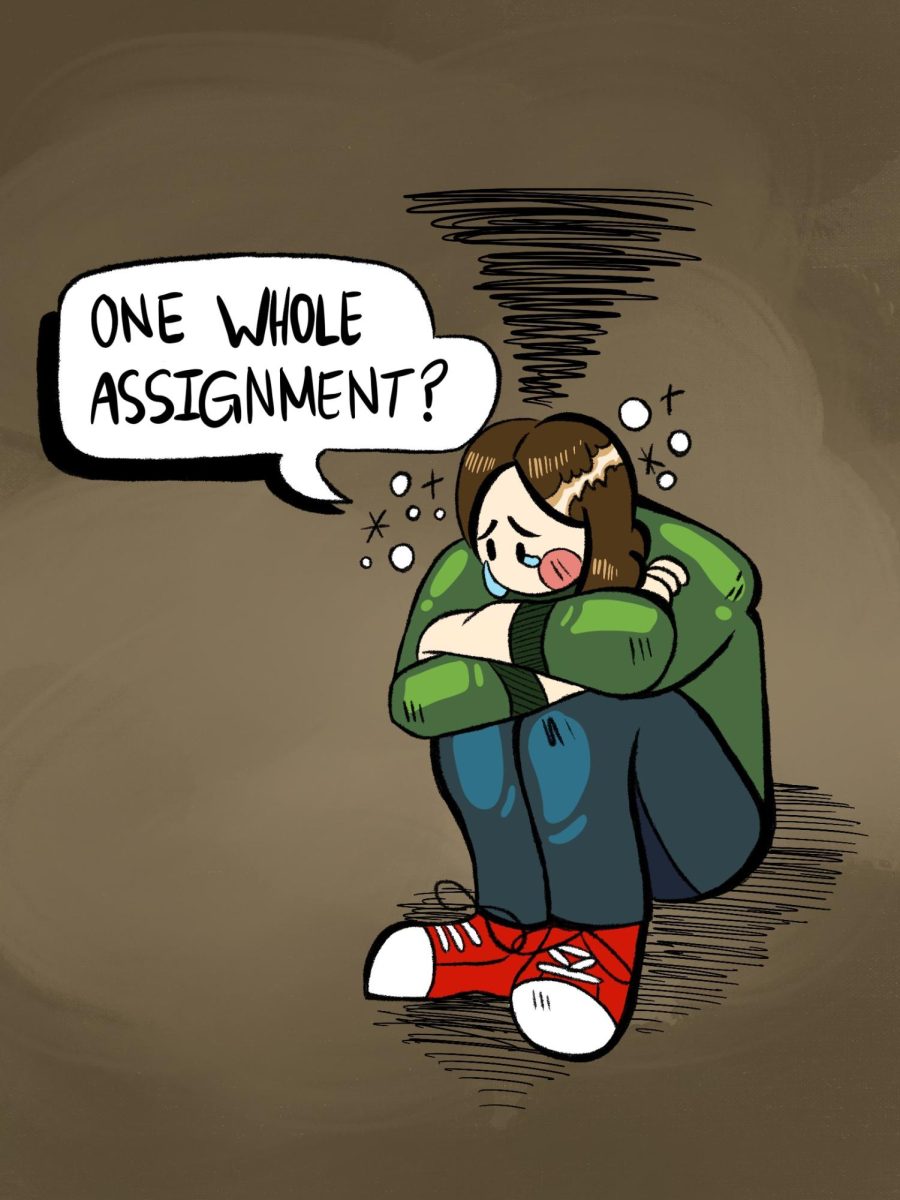It’s 1 am, you’re sleep deprived, you can’t think straight, and you have to get up in 5 hours for school. You’re wishing to go to bed, but you can’t because you need to finish your essay for history and your research project for biology that are both due next classes.
It’s your first year of college, and you’re already debating whether to drop out or not. You’re stressed and questioning your life choices because you have so much homework and don’t know how to organize it all. This is the reality of what can happen if you’re not prepared.
I believe students in high school should take harder classes such as IB and AP to better ready themselves for the academic challenges they’ll face in college. For students who don’t have the ability to partake in these vigorous classes, the honors program also focuses on work ethic, and moves at a faster speed than general level classes.
Although many high school graduates get accepted into college without these classes on their record, the college dropout rate is 32.9% annually, with freshmen making up 23.3% mainly due to academic unpreparedness and stress.
The International Baccalaureate (IB) program is a program for juniors and seniors in high school to prepare them for the very busy academic life of a college student. The IB program teaches students to develop critical thinking, analytical, and writing skills that can help them for the rest of their lives.
Students are also able to participate in Advanced Placement (AP) classes in high school starting freshman year. The AP program enables students to learn advanced skills while also earning college credits. They learn essential management and study skills needed for college and career success. Unlike IB, students don’t have to take all AP classes, and can instead take harder classes in the subjects of their choice.
The honors program is another option for students, and can help them develop effective study habits, critical thinking skills, and a strong work ethic. Honors classes provide an academic challenge to students by covering the same material as regular classes, but at a deeper level, at a faster pace, and often requires harder work and more complex analysis.
As a student athlete doing multiple sports, my schedule is already extremely full, and I wonder how I can tackle all the work that comes with IB and AP while also going to practice and meets.
Most students in the IB program at Highland do some type of sport or extracurricular activity and show that they are better at managing their time than the students who don’t participate in extra activities, because these students have already learned how to stay organized and keep their workload under control.
Back when our parents were in high school, they would have at least an hour of homework every night. Now, our generation complains when we need to finish an assignment at home that we didn’t complete during class. In many colleges in the US, this will no longer be the case. Having a lot of free time and little to no homework may seem fun now, but you will regret it when you’re knee-deep in multiple page essays that you’ll be writing at 1 am.
Students who have graduated with an IB diploma and college credit from AP show college is easy since they learned how to manage the workload while in high school, and it isn’t as overwhelming or stressful now.
More than 1600 colleges in the US, including Ivy League schools, are impressed by the IB program. The average acceptance rate for students with an IB diploma into universities is 22% higher than the acceptance rate for the general population. For Ivy League schools, the acceptance rate for IB students is 3-13% higher than the general population.
Although only 25% of universities in the US accept AP credit in all subject areas, 75% of schools still accept AP credit, but only for specific subjects. Schools that give credit for all AP subjects tend to be public universities.
Many colleges care about honors classes as well, as they like to see that you challenge yourself, and they value the rigor of students who choose to take honors classes. Many colleges value these honors credits because it shows that applicants are committed and determined. The classes can make you more competitive for college, and in some cases, can be harder than AP.
Most Ivy League schools accept AP scores for credit, but the required scores can differ significantly from one university to another. Many schools in the US have higher acceptance rates for students who score 4s and 5s on their AP tests than the students who don’t have the credits.
Students who are enrolled in the IB program become very close with each other due to the small number of kids and the classes that everyone takes together. They connect through the massive workload and the stress that comes with IB.
Students who graduated high school with an IB diploma can be given up to a year of college credits, which allows them to graduate early or gives them time to pursue a second major. Many schools also recognize that high AP test scores show that you already understand the material in various courses offered, often leading to an early graduation and money being saved.
For some students, participating in the AP and IB programs, or taking honors classes in high school gives them advantages in higher levels of education so they can feel prepared for and in control of their academic college experiences.





